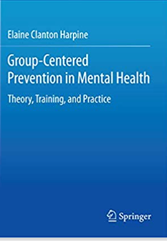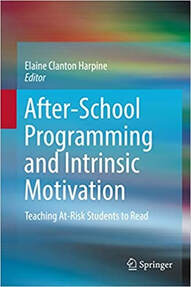 My new book is coming out soon. Keep an eye on this blog for updates, or click the link above to follow me on Twitter.
My new book is coming out soon. Keep an eye on this blog for updates, or click the link above to follow me on Twitter. What is tutoring?
There are lots of definitions, some complicated, others as simple as “to teach.” Just saying that tutoring is teaching does not really tell us anything. An article entitled, “What Tutoring is and What Tutoring Is Not” states that tutoring is a “systematic learning experience” that improves a student’s attitude toward learning a particular subject as well as their academic performance or improvement in that subject. Tutoring is usually self-paced and may be conducted as an individual, as one-on-one, or in a small group.
This definition gives us three principles: (1) tutoring is systematic, meaning it uses a specific curriculum designed to help students learn specific skills, (2) effective tutoring must improve academic performance, and (3) tutoring should improve the student’s attitude, and mental well-being toward learning, especially about the subject being taught. As a psychologist, I believe this is important because I encounter so many students who say, “I hate reading” or “I’m dumb, I can’t read.” It’s not enough to just teach skills. We must also help students improve their self-efficacy—belief that they can learn. Mental wellness includes helping students believe in themselves, believe in their ability to learn, and then demonstrating that the student is and can be successful with the subject being tutored.
 For more about self-efficacy, see Chapter 7 in Group-Centered Prevention in Mental Health
For more about self-efficacy, see Chapter 7 in Group-Centered Prevention in Mental Health No, just sitting down and helping a student finish their homework is not really tutoring, especially since homework has been proven not to improve academic performance. We’ll talk more about homework later, especially the psychological harms of homework, but for now, homework cannot be classified as tutoring because it is not systematic and does not follow a specific curriculum.
If we are to correct learning losses, we need a program that improves academic performance. This means that tutoring in reading must improve reading scores. It must teach children to read. I talk only about tutoring in reading.
As a psychologist, I work with students who are struggling or failing in reading because we have found that reading failure leads to many mental health problems. You may be asking, why is reading failure more closely connected to mental health than math? Because reading is necessary for every aspect of life. If you cannot read, you cannot even fill out a job application without help. I am not saying that math is not important. Math is very important, too, but research does not show that failure in math causes the same level of mental illness that reading failure does.
 See Chapter 1 in After-School Programming and Intrinsic Motivation for more on the problems reading failure causes with mental wellness.
See Chapter 1 in After-School Programming and Intrinsic Motivation for more on the problems reading failure causes with mental wellness. If you do not have a quality tutoring program, even the best teachers cannot help students overcome learning loss.
So, to answer our question: Can tutoring correct learning loss caused by COVID?
Yes, it can. Whether the tutoring being used by the schools will be successful or not though will depend on the “quality” of the tutoring offered.
Tutoring is not a new concept. Tutoring in school was being offered as far back as 1897. Tutoring was also offered in the schools prior to COVID. Yet over 60% of students could not read at grade level even before COVID.
____________________
For more about the learning losses that existed in reading before COVID, see: Reading Wars are Over! Phonics Failed. Whole Language Failed. Balanced Literacy Failed. Who Won? It Certainly Wasn’t the Students
____________________
That is why, if we are going to rely on tutoring to correct learning loss caused by COVID, we need to be careful about which tutoring programs we use.
In Part 2 of this discussion on tutoring, we will explore how to identify “quality” in a tutoring program. If you do not use a quality tutoring program, you will not succeed in helping students overcome the learning losses brought on by COVID and the learning losses that existed in reading before COVID. Yes, we must correct all learning loss and bring students up to their age level in reading.
 RSS Feed
RSS Feed
